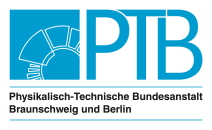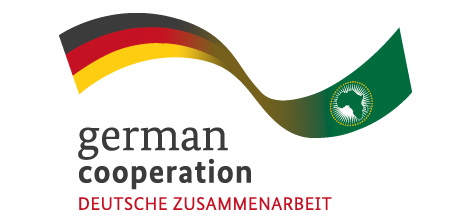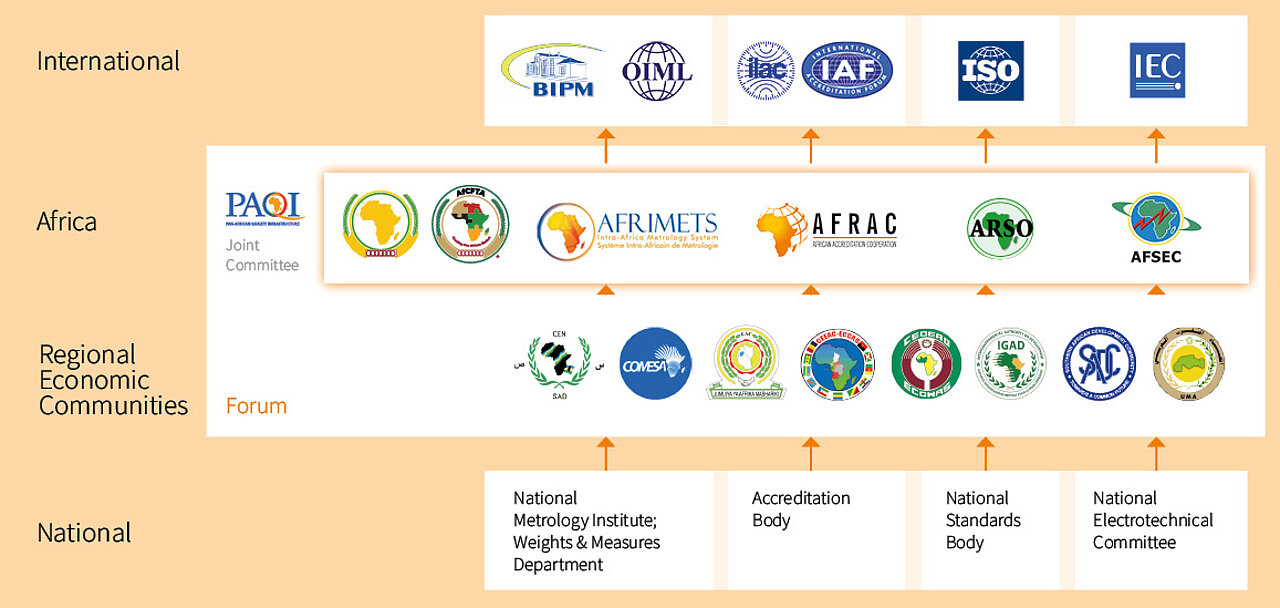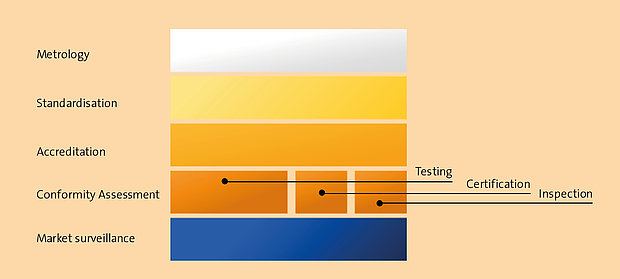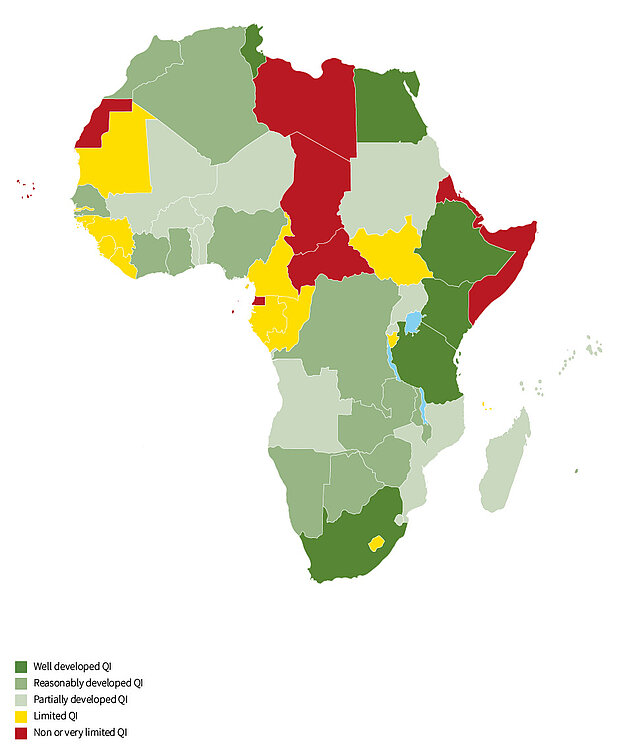Starting Point
In 1998, PTB began to support the establishment and development of quality infrastructure (QI) at the pan-African level. The need for this commitment became apparent in the findings of numerous bilateral and regional projects in Africa. A key realisation was that the fragmented institutional structures and approaches needed to be streamlined into one strategy.
QUALITY FOR AFRICA was an initiative that not only raised awareness of the indispensability of functioning Quality Infrastructure, but also represented essential prerequisites for the successful implementation of the agendas of the African Union. Over the course of many years, PTB has proven to be a reliable development partner in its cooperation with Africa’s Regional Economic Communities (RECs), the African Union Development Agency (AUDA) (formerly the New Partnership for Africa’s Development – NEPAD) and the African Union Commission (AUC).
PTB’s neutral and professional advice is always oriented towards international best practices and agreements.
Successes
In the course of implementing the QUALITY FOR AFRICA initiative, it became increasingly obvious that national quality infrastructure in Africa was not only rudimentary in many countries, but Africa’s representation in international professional organisations was also very limited. The African Organisation for Standardisation (ARSO), founded in 1977, could only partially meet the continent’s needs as the sole representative in all aspects of quality infrastructure. Therefore, processes were initiated to establish corresponding African professional organisations both in the fields of scientific and legal metrology (AFRIMETS) as well as in the field of accreditation (AFRAC).
Today, the institutional set-up in Africa mirrors that of the other continents in the world. With the foundation of Pan-African Quality Infrastructure (PAQI) in 2013, however, an exchange platform has been made available which guarantees close cooperation between the various pillars of quality infrastructure. In this regard, Africa became a pioneer for other continents. Today, all PAQI institutions are internationally recognised and are involved in the corresponding international professional associations on an equal footing. In addition, PAQI serves as a competent contact partner for the African Union Commission for all questions related to quality. With the ratification of the African Continental Free Trade Area (AfCFTA), its secretariat automatically became an important player with which PAQI works very closely.
Within the framework of the multi-level approach, the Regional Economic Communities are an integral part of the PAQI Forum, allowing their QI expertise to be used and ensuring the exchange of information between regional and continental levels (vertical integration). Among other things, this is an important building block for the implementation of Sanitary and Phytosanitary (SPS) policies as well as the Technical Barriers to Trade (TBT) Annexes of the AfCFTA Agreement.
Since 2014, PAQI has been collecting data for the so-called PAQI Index, a stock-taking of each country’s overall quality infrastructure based on more than 100 indicators. An easy-to-understand visualisation shows the current quality infrastructure status of each African country at a glance. This very helpful tool is frequently used by and for political decision-makers to emphasise the need for investment in QI. The PAQI Index shows, for example, that 39% (2023) of the AfCFTA States Parties are not or only partially in a position to fulfil the requirements of the AfCFTA Agreement in terms of TBTs and SPS policies.
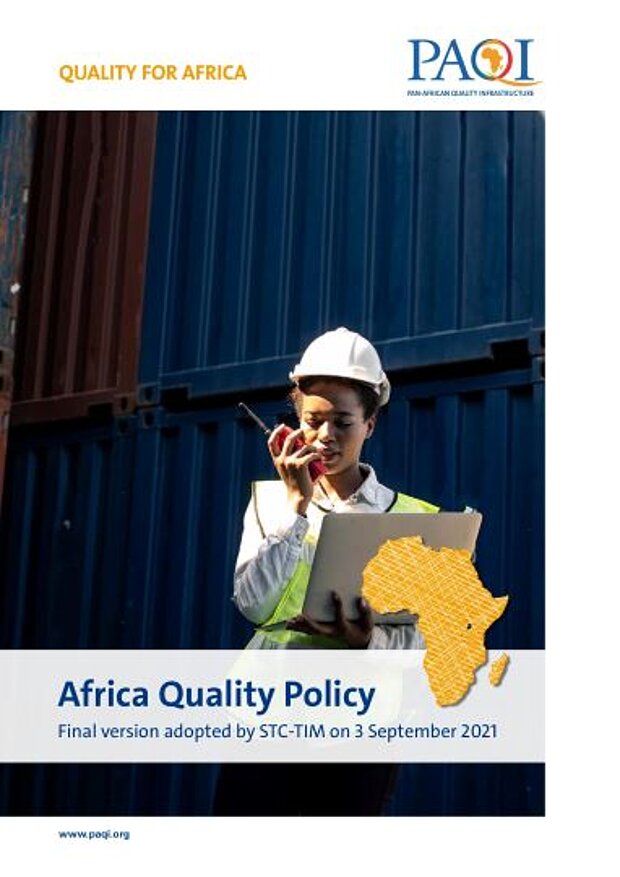
The adoption of the Africa Quality Policy by the African Union Summit in February 2022 is considered a major success and was preceded by a very transparent process in which all African countries and RECs were involved. This policy serves as a benchmark for all AU Member States for the design of their QI to ensure the quality of their products and their safety for use and for the environment. In July 2023, the Africa Quality Council was established to oversee the implementation of the AQP.
Challenges
The Quality Infrastructure in Africa has improved significantly over the past decade.In 2014, only 25 AU Member States had a satisfactory QI; in 2023, 32 States do. However, this positive development cannot hide the fact that a large number of African States still have no or limited developed QI, and there are only limited trends towards improvement. With increasing demands fpr product quality, health and environmental impact, 23 countries (42%) still need to make considerable efforts to provide quality assurance services to the required standards.
Free, fair and safe trade is closely linked to regulated trade relations. This means that standards are harmonised, and technical regulations are approximated and mutually recognised. The establishment of an African continental regulatory framework is not an easy task. However, even though it is a long-term process, it is indispensable for boosting intra-African trade and promoting export in general. In this context, it is also evident that improved cooperation among conformity assessment bodies in Africa needs to be achieved. So far there is no suitable platform to facilitate such an exchange. For example, one of the lessons of the COVID-19 pandemic was that quality assurance in the pharmaceutical sector requires both manufacturers and regulators to improve their knowledge and understanding of the science behind the processes. By offering PTB’s continued support, we hope to prepare our partner countries for challenges like this in the future.

